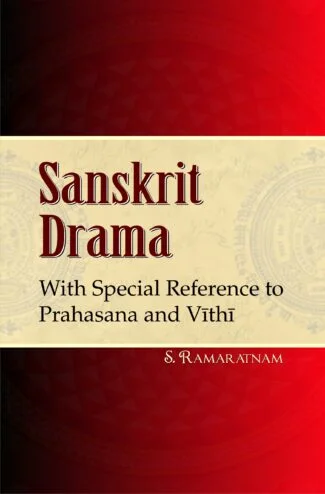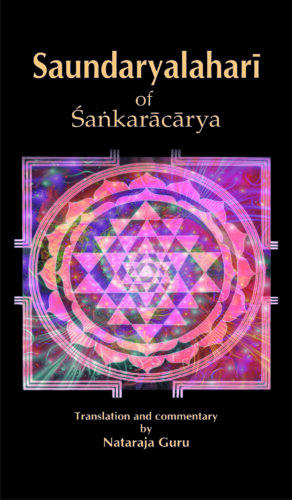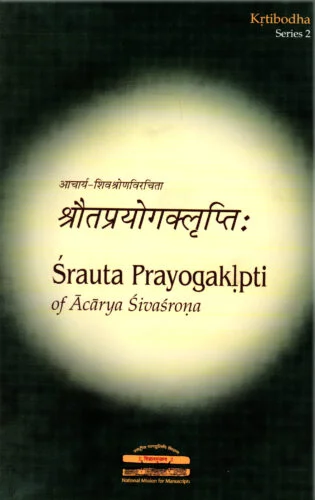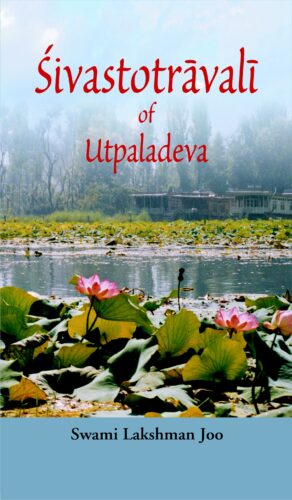Showing 109–120 of 166 results
“Sacred Thread offers a visual and three-language presentation of Pataðjali’s YogasÂtra. These 196 short sentences form the foundation for the philosophy and practice of Yoga. One of six ways of viewing the world, this Darœana emphasizes human potential. Acknowledging the troubles caused by ignorance, egotism, addiction, and negativity, Yoga urges the cultivation of opposites: gentle behavior (ahiÚsÀ), truth-telling (satya), honesty (asteya), sexual restraint (brahmacarya) and avoidance of consumerism (aparigraha). Combined with practices of body, breath, and meditation, Yoga brings understanding and freedom. Working with the original Sanskrit text, the book renders photographic images to understand Yoga philosophy along with translation and explanation in English as well as Hindi. Without a syllable to spare, the Sanskrit text encapsulates the meaning of life and the possibility of freedom in four chapters: SamÀdhi, SÀdhana, Powers, and Freedom. The daily street life of India places the entire spectrum of Pataðjali’s wisdom on display. The authors have chosen from thousands of images to match Pataðjali’s glimpses of reality with what can readily be seen in Pune or Varanasi or Delhi. The English translation seeks to convey Pataðjali’s concision without adding too much explanation. The process of Yoga requires the quieting of thoughts. By letting the words stand on their own, a sense of connection emerges, conveying the thread of Yoga wisdom. Yoga is now studied and practiced in more than four dozen universities throughout India. The Hindi translation provides yet another bridge for comprehending the wisdom of Yoga. This book will be useful for the many people training to be experts in Yoga.”

Saktapramoda is a liturgical paddhati-style compendium of sixteen independent ritual manuals. Of the sixteen texts in it, ten are dedicated to the group of ten Great Tantric Mahavidyas and, Kumari Tantra, which is another allied one devoted to the worship of a young maiden (Kumari). The rest are devoted to five deities: Ganesa, Vishnu, Shiva, Durga and Surya.
Shktapramoda of Deva Nandan Singh is a liturgical paddhati-style compendium of sixteen independent ritual manuals. The first ten works, comprising the major part of the text, are dedicated to the group of ten Tantric goddesses, referred to as the Ten Great Mahavidyas or Ten Supreme Powers the goddesses Kali, Tara, Sodashi, Bhuvaneshvari, Chinnamasta, Matangi, Tripurabhairavi, Dhumavati, Bagalamukhi and Kamala. The next important text closely allied to the worship of the goddesses is the Kumari Tantra devoted to the worship of a young maiden (Kumari). The next group of works comprises the pentad of Tantras devoted to five deities: Ganesha, Vishnu, Shiva, Durga and Surya. These five deities are invoked in almost all forms of ritual worship prescribed by the Vedas, Puranas and to a degree by the Tantras.
Each Tantra describes the dhyana of the deity, the yantra, mantras and the method of Tantric form of worship of the deity, along with praise hymns, protective formulas (kavaca) and litanies of divine names, be they a group of hundred names (shatanama) or a thousand names (sahasranama).
The first edition of Shktapramoda was published by Raja Deva Nandan Singh, an aristocratic zamindar of Muzaffarpur, Bihar, in the nineteenth century. The present edition brings together a fully edited and revised text with an elaborate introduction (in English), and a comprehensive index along with lithographic images of Tantric deities.

This inspirational guide to an open, critical exchange between India and the West is framed as a tribute to Dr. Bettina Baumer, an eminent scholar of Indology. Comprising 32 essays, segregated into three sections Indian philosophy and spirituality, Indian Arts and Aesthetics, and Interreligious and Intercultural Dialogue.
The present volume is a tribute to Dr. Bettina Baumer, an eminent scholar of Indology and Religious Studies in general and of Kashmir Shaivism in particular, and one of the important exponents of interreligious dialogue. It contains 32 essays which are divided into three sections, representing the main fields of study of Bettina Baumer. Section I – Indian Philosophy and Spirituality is focussed on the non-dualistic Tantric Shaivism of Kashmir. The range of topics reach from an analysis of the term Vishranti/ repose (A. Chakrabarti, Hawaii), the first English translation of the Tantric hymn Bahurupa-garbhastotra (H.N. Chakravarty, Varanasi) to the Parvan rites described in Chapter 28 of Abhinavaguptas Tantraloka (A. Padoux, Paris) and a commentary on the opening verses of Abhinavaguptas Tantrasara (A. Sanderson, Oxford). This focus is complemented by other important contributions, for example on Gandhis Ethical Thought (J. Prabhu, Los Angeles) and an analysis of the interactions between Vedanta and Tantra, as shown in the Lalitatrishatibhashya (A. Wilke, Munster). Section II – Indian Arts and Aesthetics contains nine significant articles from outstanding scholars: Kapila Vatsyayan (on the representation of Mount Kailasa in myth, temple architecture and classical literature), Devangana Desai (on the relevance of textual sources in the study of temple art), R.N. Misra (the history of Shaiva-Siddhanta in Central India), R. Nagaswamy (Guhavasi and Devaraja in Cambodia) and others, along with illustrations. The last section on Interreligious and Intercultural Dialogue wants to stimulate the dialogue between the Indian and Western history of thought especially with two articles: an examination of the concept of the Self and its knowledge in the Western mystical tradition, compared with the concept of self-knowledge in the Upanishads (A.M. Haas, Zurich); and a study of Nothingness as a key term in Johannes Tauler. This part also contains reflections on an overcoming of the social, economic and political crisis of our contemporary world: e.g. on the cross-cultural dimension of an ethics of justice (M. von Bruck, Munich) and on the interculturation of religious life (F. X. DSa, Pune/Wurzburg). This section ends with the key article by R. Panikkar on essential questions in the dialogue between Hinduism and Christianity, presented through the metaphor of The Drop of Water. The volume will be useful not only to scholars of Indology, Indian Philosophy, Indian Arts, and Religion, but also to anybody interested in an open, critical exchange between India and the West or in search of ways out of the fundamental crisis of our time.

The book is an attempt to present the Vithi and the Vithyangas in Sanskrit covering all aspects of theory and practice. Based on an in-depth study of source material the work examines several theories of rasa realization besides presenting a detailed treatment of hasya rasa.
Prahasana and the Vithi are two of the major playforms in Sanskrit Drama. Though studies on some individual prahasanas and vithis have appeared from time to time in research journals, there is no comprehensive study of the two playforms on comparative basis, undertaken so far. The present book is an attempt to cover all aspects of prahasana and vithi, in theory and practice. It is based on an in-depth study of manuscripts, microfilms and transcripts collected from various sources.
Beginning with the important aspects of Sanskrit drama, the book briefly examines the theories of rasa realization and presents a detailed account of the hasya rasa besides undertaking a study of the theoretical aspects of the prahasana first and the vithi in a later chapter, as sanctioned in the works on dramaturgy. It also presents an account of the suddha prahasanas that provide a contrasting picture in comparison with the samkirna variety. The work also analyses a few important vithi specimens. The chapter on the Vithyangas is a special feature of the work. Illustrations from well-known dramas serve to explain the textual matter with a rare clarity of thought and expressions.
This volume will interest scholars and students of Indology who are focused on the study of Sanskrit drama and dramaturgy, in particular, and literature, in general. It will also benefit readers interested in ancient Indian theatre.

This detailed commentary views the Saundaryalahari compilation of 100 verses in praise of the Devi as Advaita Vedanta itself. The absolute joy of Advaita is presented in a pictorial language, subjectively as ananda, and objectively as saundarya.
The Saundaryalahari has fascinated and puzzled generations of scholars and laypersons; subject to continuing study and debate, till today, such details as the authorship of the 100 verses named the Saundaryalahari remain a matter of contention, particularly among scholars. While some attribute it to Shankara, others argue that the Saundaryalahari’s verses in praise of the Devi cannot have been authored by this staunch Vedantin; some argue that its value is essentially in the realm of what is loosely called “tantra,” while others extend the significance of the Saundaryalahari to include the preoccupations of Vedanta. Nataraja Guru is unequivocal in his belief that none other than Shankara could have composed this masterpiece of mystical poetry and identifies internal evidence in the verses themselves to support this view. The detailed commentary views the Saundaryalahari as Advaita Vedanta itself. The absolute Joy of Advaita is presented in a pictorial language, subjectively as ananda, and objectively as saundarya.

This detailed commentary views the Saundaryalahari compilation of 100 verses in praise of the Devi as Advaita Vedanta itself. The absolute joy of Advaita is presented in a pictorial language, subjectively as ananda, and objectively as saundarya.
The Saundaryalahari has fascinated and puzzled generations of scholars and laypersons; subject to continuing study and debate, till today, such details as the authorship of the 100 verses named the Saundaryalahari remain a matter of contention, particularly among scholars. While some attribute it to Shankara, others argue that the Saundaryalahari’s verses in praise of the Devi cannot have been authored by this staunch Vedantin; some argue that its value is essentially in the realm of what is loosely called “tantra,” while others extend the significance of the Saundaryalahari to include the preoccupations of Vedanta. Nataraja Guru is unequivocal in his belief that none other than Shankara could have composed this masterpiece of mystical poetry and identifies internal evidence in the verses themselves to support this view. The detailed commentary views the Saundaryalahari as Advaita Vedanta itself. The absolute Joy of Advaita is presented in a pictorial language, subjectively as ananda, and objectively as saundarya.

A compilation of seminar papers by Indian and foreign experts brings alive ancient Indian developments in science, technology and medicine. The book presents Vedic quest in science and metaphysics with a special emphasis on ancient science and contemporary ideas.
The volume comprises seminar presentations by experts from India and abroad involved in the study of development of the natural sciences in ancient India. It offers eighteen papers from the seminar that showcase and project the Vedic literature as a treasure trove of vast knowledge that covers various branches of learning. The papers in particular discuss the ancient developments in science and technology: logic, mechanics in Sanskrit literature, Indian mathematics and its application in the Vedas, besides production technology and mechanical engineering, environmental science and roots, applicative wonders and scientific validation of Ayurveda. They involve a deep study of the Vedic understanding and description of sound and speech as para, pashyanti, madhyama and vaikhari. They also deal with the Indian perspective on the spirit and some mahakavyas of Indian philosophy. They scrutinise various theories on matter, causation, metals, dreams and motion, according to the Vaisheshika philosophy and underline the relevance of ancient knowledge to the contemporary world, especially in relation to the Vedic physics, environmental science and Ayurveda. They reiterate in unison the scientific vision of the ancient sages who held the keen eye of a poet-artist even while bringing to light modern and advanced ideas. The papers include references to various commentaries and studies on scientific and mathematical treatises, like Katyayana’s Shulbasutra and Vaimanikashastra of Bharadvaja.
The book will interest Indologists, particularly concerned with the study of ancient science, technology and mathematics, as they evolved in ancient India.
“प्रस्तुत ग्रन्थ “शक्ति उपासना” का वैभव राजानक महेश्वर राज़दान ने सायुज्य याेग के लिए शारदा लिपि के अन्तर्गत 126 दिव्य-नामावली के गुंथन में समर्पित किया है। चिन्मयी भैरवी के इस महामन् त्र काे ईश्वरस्वरूप स्वामी लक्ष्मण जी महाराज ने 1934 ईस्वी से संजाेए रखा अाैर तत्पश्चात् उनकी परम शिष्या याेगिनी शारिका देवी जी काे प्रदान किया। तत्पश्चात् सुश्री याेगिनी प्रभाजी ने इसे संजाेए रखकर देवनागरी लिपि में प्राेफेसर पुष्पजी से रूपान्तरित करवाकर महती कृपा की है। शक्ति उपासना के अन्तर्गत इच्छा, ज्ञान, क्रिया, शक्ति के नादानुसन्धान का उच्चारण क्रमिक है। चिन्मयी भैरवी शिव तथा शिवानी का एकात्म भाव स्वरूप है, अतः ित्रक शास् त्र की दृष्टि में सर्वाेपरि है, क्याेंकि सर्वव्यापी शक्ति विद्या-स्वरूपिणी है। प्रकाश तथा विमर्श सनातन शक्ति का ही प्रसार है। यामी शक्ति विश्वात्मिका हाेने के साथ अमृतेश्वरी का रूप धारण करके भक्ति, याेग तथा दैवी सम्पदा की अाेर स्फुरित हाेती है। अाद्या शक्ति चिन्मयी भैरवी निरन्तर स्फुरण करती है। शक्ति उपासना में ित्रपुर भैरवी श्रीप्रदा ज्ञान के द्वारा ज्ञाता के रूप में तथा ज्ञेय काे एक सूत्र में पिराेती हुई अमृत का पान कराती है। देवी का वरदान एवं सन्धिनी–ह्लादिनी शक्ति की अभय-मुद्रा उमा से कामेश्वरिप्रिया का प्रसार ही है। भुवन-मालिनी का रूप धारण करती हुई माेक्षप्रदा अमृतेश्वरी साधक के लिए ज्ञानाङ्ग एवं मन् त्र दीपिका है। शिव तथा शिवानी का एकात्मस्वरूप जानना मृत्यु से माेक्ष प्राप्ति का शाक्त अनुसन्धान है। “

This book contains extensive commentaries on Narayana Guru’s five shorter philosophical poems The Science of the Absolute in Five Verses, Lamp of Non-duality, Consciousness, Chants for Oblations in Fire, and Ten Verses Addressed to God: A Universal Prayer. The poems elucidate the Vedàntic doctrine in terms of causality and the idea of Reality or atma being Consciousness in essential content.
The work collects Narayana Gurus most important shorter philosophic poems into one volume. They are respectively, the Brahmavidya Pancakam (Science of the Absolute), Advaita Dipika (Lamp of Non-Duality), Arivu (Consciousness Examined), Homa Mantram (Fire Oblation) and Daiva Dashakam (Ten Verses Addressing God). The verses are rendered into English and commented upon extensively by Swami Muni Narayana Prasad. Alongside the Gurus Atmopadesha Shatakam (One Hundred Verses of Self-Instruction) and the Darshana Mala (Garland of Visions), these poems are intended to transmit the wisdom of the Upanishads to the earnest seeker of the modern age. As a rishi of the modern age, Narayana Guru deals with issues pertinent today, including how social ethics and other contemporary problems are to be treated in light of the Absolute. As such, the Gurus poems may be said to be both ancient and modern at the same time.
Each poem contained in this book may be said to deal with a specific philosophical problem or a set of problems that may be encountered in the search for the Absolute. Each problem is consistently answered in light of the Absolute. Such elucidations include the prerequisites of both a true seeker and a true guru, the nature of the rapport to be established between each, and how the Absolute is sat, cit and ananda together. Other elucidations include the ultimate nature of Reality examined in terms of Consciousness, how Vedic ritual may be understood properly so that it may lead one to the highest realm of non-dual wisdom, and how to pray to God in the Absolutist sense.

The book is a Shrauta-Prayoga text, which deals with the sequence and procedures of the Shrauta- sacrifices. It also explains many technical ritualistic terms in accordance with their usage in Vadhula-tradition, focusing on the performance of the rituals with accuracy.
The Prayogaklpti, as its nomenclature indicates, is a Shrauta-Prayoga-text, dealing with the sequence and procedures of the Shrauta-sacrifices, viz. Agnyadheya, Darshapurnamasyeshti, Chaturmasya, Pashubandha, Jyotishtoma and Agnishtoma in six Prapathakas respectively, as prevalent in the Vadhula tradition. The author of the text is Acarya Shivashrona, a versatile exponent of the Shrauta tradition. At places he explains many technical ritualistic terms in accordance with their usage in the Vadhula tradition. He gives very much stress on the performance of the rituals with accuracy in accordance with the Vadhula tradition, after having consultation with experts in this matter. He often quotes the views of other Acharyas not by names but using the phrases like iti kecit, ityanye, ityeke, and so on.
This text has been edited for the first time on the basis of three MSS deposited in the Government Oriental Manuscript Library, Chennai; Adyar Library, Chennai; and Oriental Institute, M.S. University, Baroda, by an eminent Vedic Scholar like Prof. B.B. Chaubey who has already edited many other texts of this tradition like Vadhula-Shrautasutra, Vadhula-Anvakhyana, Vadhula Kalpagamavrttirahasya, Vadhµla-Yajnaprayashcitta, Vadhula-Smriti and also the Ashvalayana Samhita of the Rigveda for the first time.
The text is appended with three important indexes, viz. glossary of technical terms, mantras quoted in the text, and complete word-index.

Suparnadhyaya is a later Vedic versified short play portraying the story of the incredible dexterity and strength of Garuda and his wondrous deed of bringing soma (amrita), from Indras heaven for the sake of Snakes, after defeating Indras guards and ridiculing his divine weapon.
The experiences and knowledge from our past are recorded in manuscripts which have been handed down to us over several thousand years. The Government of India, through the Department of Culture, took note of the importance of this vast tangible heritage and, in order to preserve and conserve as well as to make access to this wealth easy, established the National Mission for Manuscripts (NMM). In order to disseminate the knowledge content of manuscripts, the Mission has taken up several programmes such as lectures, seminars and workshops. The Mission has published the proceedings of the above-said programmes under the following series: Samrakshika (on conservation), Tattvabodha (comprising lectures based on manuscripts delivered by eminent scholars), Samikshika (research-oriented papers presented in the seminars), and Kritibodha (transcribed and edited texts prepared at advanced level manuscriptology workshops conducted by NMM.
NMM has taken up a project for publishing rare and unpublished manuscripts in three formats (a) Facsimile, (b) Critical edition with annotation and (c) Critical edition with translation. This series has been named as Prakashika. Suparnadhyaya critically edited by Prof. G.C. Tripathi comes under this Prakashika series.
Suparnadhyaya, Suparnadhyanam or simply Sauparnam is a later Vedic text of Indian dramatic tradition, lesser known to scholars primarily due to the fact that it was never translated into English language. This play, normally enacted during the festival of Indradhvaja, has a plot which is woven around the story of the incredible dexterity and strength of Garuda and his wondrous deed of bringing soma (amrita) from Indras heaven for the sake of Snakes, after defeating Indras guards and ridiculing his divine weapon. This story finds a mention even in Mahabharata. This short play is in a metrical form, interspersed with occasional prose-pieces.
This text has come down to us in an incorrect form due to faulty manuscript tradition. In this volume, the author has tried to restore the text with the help of higher textual criticism and has given due justification for his amendments. It presents the text with English and Hindi translations for the benefit of those readers who are not conversant with Sanskrit.

The Sivastotravali is a collection of hymns composed by Utpaladeva, the great mystic and philosopher of non-dualistic Kashmir Saivism, and the Paramaguru of the illustrious Abhinavagupta. This book brings out the English exposition, for the first time, of the hymns by Swami Lakshman Joo, the renowned scholar of Kashmir Saivism.
Utpaladeva (late 9thearly 10th century) was a great philosopher of the School of Recognition of non-dualist Kashmir Shaivism, who established its philosophy on a solid basis with his Ishvarapratyabhijna Karikas (Verses on the Recognition of the Lord), and with three philosophical works, the Siddhitrayi. He was the predecessor (Paramaguru) of the great Abhinavagupta. But at the same time he was a mystic of bhakti as we find it here expressed in his Hymns Shivastotravali. For him, bhakti and advaita were not opposed to each other but complementary.The Shivastotravali is a collection of verses and hymns which are an expression of intense bhakti, longing for the Lord, and the mystical experience of the author and his non-dual union with Shiva. They were arranged in 20 chapters or Stotras by his disciples. Of highly poetic quality, these verses belong to the greatest mystical literatures of the world. Swami Lakshman Joo, the last Shaivacarya of Kashmir (19071991), combined in himself the great scholar of the tradition of Kashmir Shaivism, who taught and expounded its texts time and again to his disciples and to scholars from all parts of the world, and the perfect yogi who had an intimate experience of the spirituality contained therein. He had a special love for the Shivastotravali and expounded it many times in different languages (Kashmiri, Hindi and English). His edition of the Shivastotravali with Kshemaraja’s commentary and his Hindi translation remains the standard text. In the present volume his exposition in English is brought out for the first time.
| × |
|
Jadavpur Journal of Philosophy 1 x ₹270.00 |
| × |
|
1857 ki Kranti 1 x ₹585.00 |
| × |
|
Roots, Verb-Forms and Primary Derivatives of the Sanskrit Language 1 x ₹585.00 |